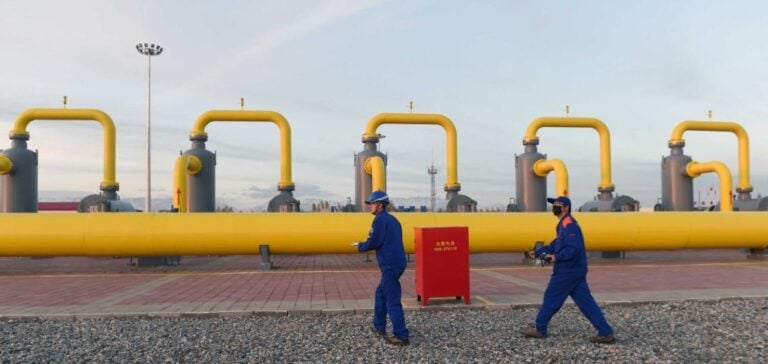China’s national oil and gas companies PetroChina, Sinopec and China National Offshore Oil Corporation (CNOOC ) are planning to reduce the prices of their pipeline gas sales contracts for the years 2024-2025. This decision, motivated by abundant supply from both domestic production and imports, is designed to compete with falling spot LNG prices. China’s expanding gas market now gives more end-users access to a variety of supply sources, increasing price competition.
Impact on the spot market
If China’s national gas companies (NOCs) manage to negotiate lower prices and secure demand from second-tier gas companies through pipeline gas contracts, this could limit the increased activity on the spot market seen in January and February. Competition in China’s gas market is becoming increasingly two-way, with low spot LNG prices putting pressure on NOCs to reduce pipeline gas prices, and vice versa.
Contract renegotiation
The three major NOCs generally sign annual sales contracts with downstream customers, mainly including second-tier gas distributors, industrial users and gas-fired power plants, for the supply of gas by pipeline from April to March. The pricing and volume of these contracts are significant, as they influence gas supply for the rest of the year. These contracts are usually finalized by the end of March, but CNOOC and Sinopec have started discussing price levels with customers, probably due to the drop in spot prices.
Price variability
Pricing formulas vary from province to province, depending on gas infrastructure and accessibility, which has an impact on prices. However, downstream pipeline contract prices for 2024-2025 could range from 2.8 to 3.1 yuan/m³, around 12.5% lower than the 3.2 to 3.6 yuan/m³ for the 2023-2024 period, according to market sources. CNOOC has proposed a pricing plan for non-residential users in Guangdong province for the unheated season, based mainly on Platts JKM, at around 3 yuan/m³, plus or minus 5%, lower than last year’s average of 3.43 yuan/m³.
In addition to price reductions, Chinese NOCs maintain their domestic market share by adjusting the volume of pipeline gas contracts offered to second-tier gas companies. The NOCs are expected to increase the volume of gas offered for the period 2024-2025, exceeding the base and incremental volume proposed last year. Lower pipeline gas prices and increased supplies are aimed at maintaining downstream market share, while JKM prices have fallen to 34-month lows of less than $8/MMBtu in recent weeks, and LNG inventories in Northeast Asia were higher than expected.






















